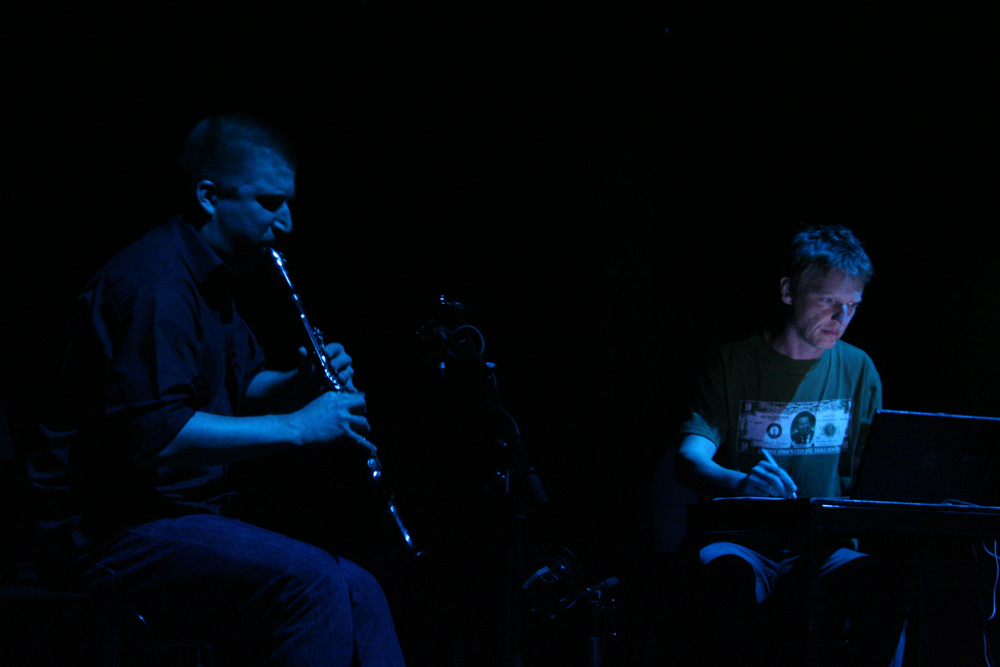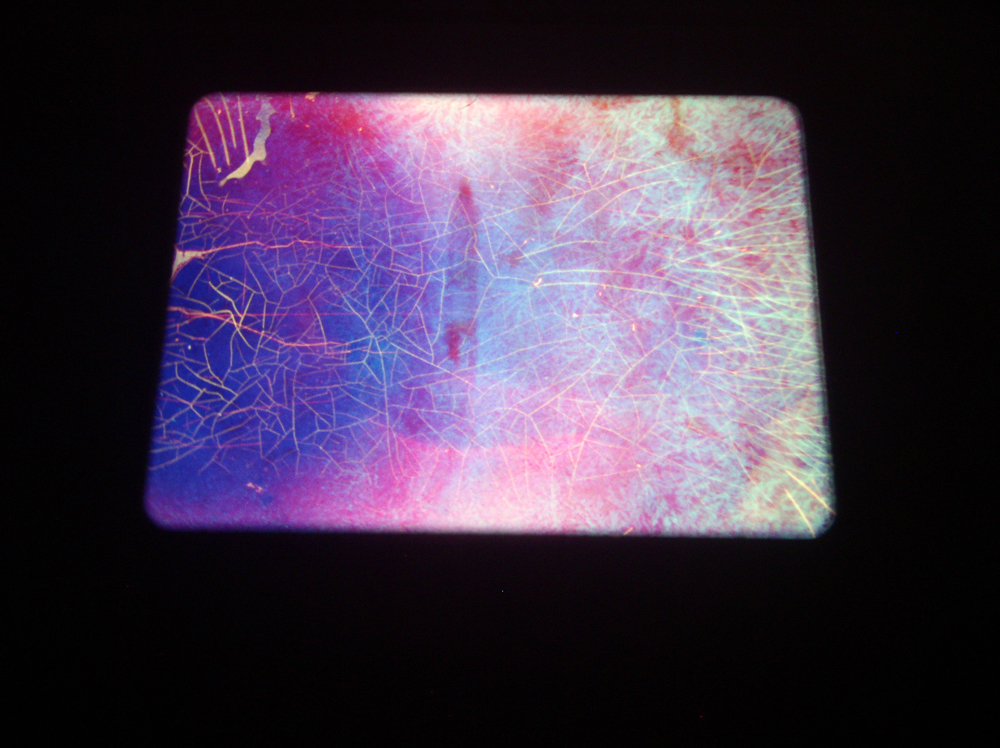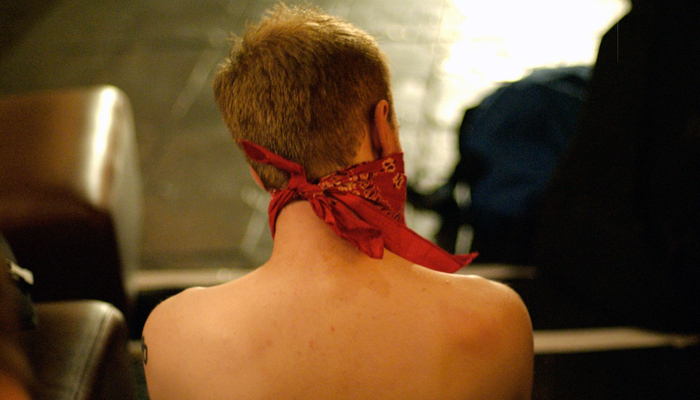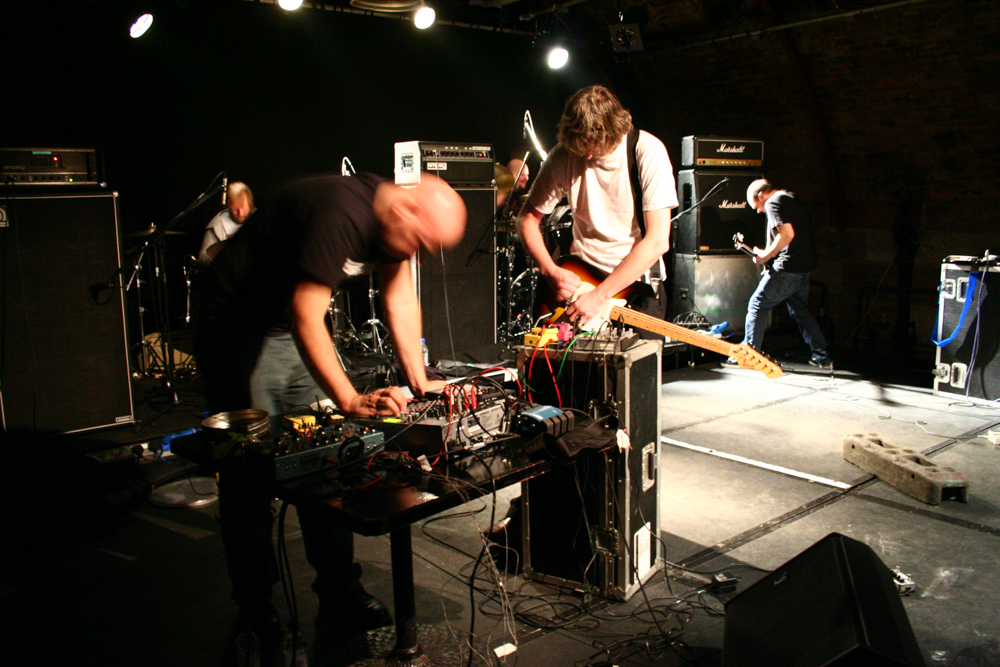
Arrington de Dionyso
Arrington de Dionyso
Solo performance on bass clarinet, jaw harp & voice by Arrington De Dionyso.
Arika have been creating events since 2001. The Archive is space to share the documentation of our work, over 600 events from the past 20 years. Browse the archive by event, artists and collections, explore using theme pairs, or use the index for a comprehensive overview.

Solo performance on bass clarinet, jaw harp & voice by Arrington De Dionyso.

Jacobs’ pulsing and abstract 3D Nervous Magic Lantern performance grounded by Eric La Casa’s manipulated recordings of everyday locations.

Ten short intimate one-on-one conversations with Robert Softley Gale – We all want to see ourselves reflected in the world around us—in society, in art, in culture… in porn?

Los Glissandinos work with clarinet and sine tones beating and thrumming in your middle ear, all beautifully paced and serene, but with just enough steely menace broiling under the surface to keep you on edge.

An immersive live performance for multiple 16mm film and bass clarinet, taking in the whole gallery, submerging the audience.

A preposterously heavy, eye of the storm musical tug of war, in which two drummers, electronics and electric guitar fall over each other in a droning crush.

Thirty lucky Instal punters experience Kylie’s pre-match aggro workout one-on-one in the darkness of an Arches dressing room.

Could cruising and random public sex be the basis of an ethically organised society? A discussion with Jackie Wang, Samuel R. Delany and Huw Lemmey.

The Scottish based Paragon Ensemble has commissioned David Fennessy to compose music for Instal, which will be performed during the evening.

A black hole of dense heaviosity, full of slow motion riffage, tectonic pummel and massive planet destroying rock.

Somewhere between performance, stripped down theatre and an intense kind of public learning or maybe even a public hearing.
A public gathering that brings together local artists, musicians, activists, and community organisers.